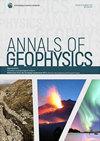Data integration and FAIR data management in Solid Earth Science
IF 1.2
4区 地球科学
Q3 GEOCHEMISTRY & GEOPHYSICS
引用次数: 2
Abstract
Integrated use of multidisciplinary data is nowadays a recognized trend in scientific research, in particular in the domain of solid Earth science where the understanding of a physical process is improved and made complete by different types of measurements – for instance, ground acceleration, SAR imaging, crustal deformation – describing a physical phenomenon. FAIR principles are recognized as a means to foster data integration by providing a common set of criteria for building data stewardship systems for Open Science. However, the implementation of FAIR principles raises issues along dimensions like governance and legal beyond, of course, the technical one. In the latter, in particular, the development of FAIR data provision systems is often delegated to Research Infrastructures or data providers, with support in terms of metrics and best practices offered by cluster projects or dedicated initiatives. In the current work, we describe the approach to FAIR data management in the European Plate Observing System (EPOS), a distributed research infrastructure in the solid Earth science domain that includes more than 250 individual research infrastructures across 25 countries in Europe. We focus in particular on the technical aspects, but including also governance, policies and organizational elements, by describing the architecture of the EPOS delivery framework both from the organizational and technical point of view and by outlining the key principles used in the technical design. We describe how a combination of approaches, namely rich metadata and service-based systems design, are required to achieve data integration. We show the system architecture and the basic features of the EPOS data portal, that integrates data from more than 220 services in a FAIR way. The construction of such a portal was driven by the EPOS FAIR data management approach, that by defining a clear roadmap for compliance with the FAIR principles, produced a number of best practices and technical approaches for complying with the FAIR principles. Such a work, that spans over a decade but concentrates the key efforts in the last 5 years with the EPOS Implementation Phase project and the establishment of EPOS-ERIC, was carried out in synergy with other EU initiatives dealing with FAIR data. On the basis of the EPOS experience, future directions are outlined, emphasizing the need to provide i) FAIR reference architectures that can ease data practitioners and engineers from the domain communities to adopt FAIR principles and build FAIR data systems; ii) a FAIR data management framework addressing FAIR through the entire data lifecycle, including reproducibility and provenance; and iii) the extension of the FAIR principles to policies and governance dimensions. .固体地球科学中的数据集成与FAIR数据管理
综合利用多学科数据是当今科学研究中公认的趋势,特别是在固体地球科学领域,其中通过不同类型的测量- -例如地面加速度、SAR成像、地壳变形- -描述物理现象,改进和完善了对物理过程的理解。公平原则被认为是促进数据整合的一种手段,它为开放科学建立数据管理系统提供了一套通用标准。然而,公平原则的实施引发了治理和法律等方面的问题,当然,这不仅仅是技术方面的问题。特别是在后者,FAIR数据提供系统的开发通常被委托给研究基础设施或数据提供商,并得到集群项目或专门倡议提供的指标和最佳实践方面的支持。在目前的工作中,我们描述了欧洲板块观测系统(EPOS)中FAIR数据管理的方法,EPOS是固体地球科学领域的分布式研究基础设施,包括欧洲25个国家的250多个独立研究基础设施。通过从组织和技术角度描述EPOS交付框架的体系结构,并概述技术设计中使用的关键原则,我们特别关注技术方面,但也包括治理、策略和组织元素。我们描述了如何需要多种方法的组合,即富元数据和基于服务的系统设计来实现数据集成。我们展示了EPOS数据门户的系统架构和基本功能,该门户以公平的方式集成了来自220多个服务的数据。这样一个门户网站的建设是由EPOS FAIR数据管理方法驱动的,该方法通过定义符合FAIR原则的明确路线图,产生了许多符合FAIR原则的最佳实践和技术方法。这项工作跨越了十多年,但主要集中在过去5年的EPOS实施阶段项目和EPOS- eric的建立上,与其他处理公平数据的欧盟倡议协同进行。在EPOS经验的基础上,概述了未来的发展方向,强调需要提供i)公平参考架构,使领域社区的数据从业者和工程师能够采用公平原则并构建公平数据系统;ii)一个公平数据管理框架,在整个数据生命周期中解决公平问题,包括再现性和来源;以及iii)将公平原则扩展到政策和治理层面。
本文章由计算机程序翻译,如有差异,请以英文原文为准。
求助全文
约1分钟内获得全文
求助全文
来源期刊

Annals of Geophysics
地学-地球化学与地球物理
CiteScore
2.40
自引率
0.00%
发文量
38
审稿时长
4-8 weeks
期刊介绍:
Annals of Geophysics is an international, peer-reviewed, open-access, online journal. Annals of Geophysics welcomes contributions on primary research on Seismology, Geodesy, Volcanology, Physics and Chemistry of the Earth, Oceanography and Climatology, Geomagnetism and Paleomagnetism, Geodynamics and Tectonophysics, Physics and Chemistry of the Atmosphere.
It provides:
-Open-access, freely accessible online (authors retain copyright)
-Fast publication times
-Peer review by expert, practicing researchers
-Free of charge publication
-Post-publication tools to indicate quality and impact
-Worldwide media coverage.
Annals of Geophysics is published by Istituto Nazionale di Geofisica e Vulcanologia (INGV), nonprofit public research institution.
 求助内容:
求助内容: 应助结果提醒方式:
应助结果提醒方式:


